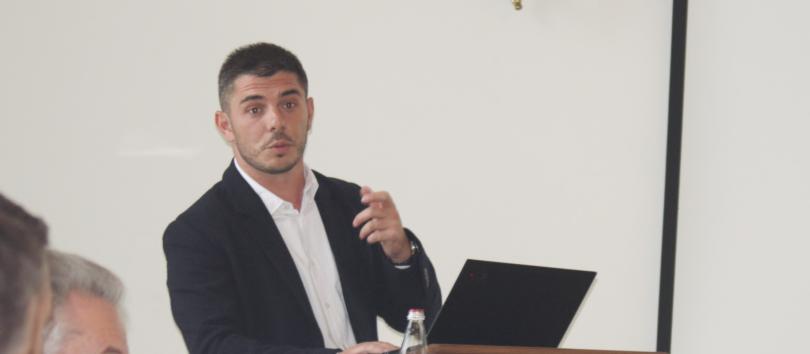
Torino Process Kosovo: A focus on teachers
“The monitoring of progress in policy dimensions concerning the situation of school leaders and educators is a key component of the Torino Process exercise and an important source of evidence for the Ministry of Education, Science, Technology and Innovation (MESTI),” said Majlinda Rizvanolli, Advisor on Vocational Education and Training to MESTI at the Torino Process report dissemination event, which was held on Friday, 6 October in Prishtina, Kosovo.
The sixth round of the Torino Process, which commenced in 2022, examines many deliverables of vocational education and training systems, including the extent to which they cater for the professional development needs of teachers and staff in leadership positions in education and training.
The event was led by MESTI. It brought together key stakeholders and representatives from the VET Agency, the National Qualifications Authority, the Ministry of Finance, civil society, school directors and teachers, the Chamber of Commerce, and the international donor community.
“The monitoring framework introduced with this round of the Torino Process allows for greater international comparison, which is really helpful because it allows for better exchange and networking with other countries on the situation for teachers” said Valbona Fetiu-Mjeku, from MESTI.
In Kosovo, many teachers are not formally qualified although they have a long experience teaching professionally. Recognition of prior experience, non-formal and informal learning, and indeed the many trainings they have undertaken over the years is important for their professional standing and status.
“This Torino Process, and the engagement needed in gathering data for its various dimensions has been an important stimulus for MESTI to identify the extent of this issue and address it,” added Fetiu-Mjeku.
Nevertheless, teachers at the event highlighted that there are limitations in the availability of data on the professional trainings that are being undertaken, which in turn prevents an accurate overview at system level.
“Currently, there are many individual datasets in different schools and training centres. We need one centralised system to capture the full picture,” said Jetmir Berisha, a vocational education and training teacher.
Veton Alihajdari from MESTI pointed out that in previous years the budget for vocational education and training was targeted to infrastructure mostly but that now the focus is shifting towards equipping schools and teachers with the skills needed through high quality training and facilities.
“One of priorities for the next round of the Torino Process is to ensure that we capture all that is being done and that we dedicate the proper resources to build skills intelligence on all that is being achieved within the VET system,” concluded Ryve Prekorogja.
Did you like this article? If you would like to be notified when new content like this is published, subscribe to receive our email alerts.